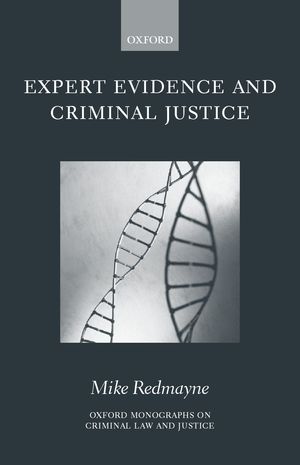
As an increasing range of expert evidence becomes available to it, the criminal justice system must answer a series of challenging questions: should experts be permitted to give evidence on the credibility of witnesses? How should statistical evidence be presented to juries? What relevance does syndrome evidence have to questions of criminal responsibility? This work explores these issues.
It utilizes work in a number of disciplines, and draws comparisons with the law and procedure in several different jurisdictions. While developing a general overview of the use of scientific evidence in the criminal process, the author makes use of detailed examinations of particular issues, such as battered women syndrome, fingerprinting, and eyewitness expertise. Through an analysis of expert evidence, he also invites reflection on a series of wider issues, among them the function of exclusionary rules and the nature of case construction.